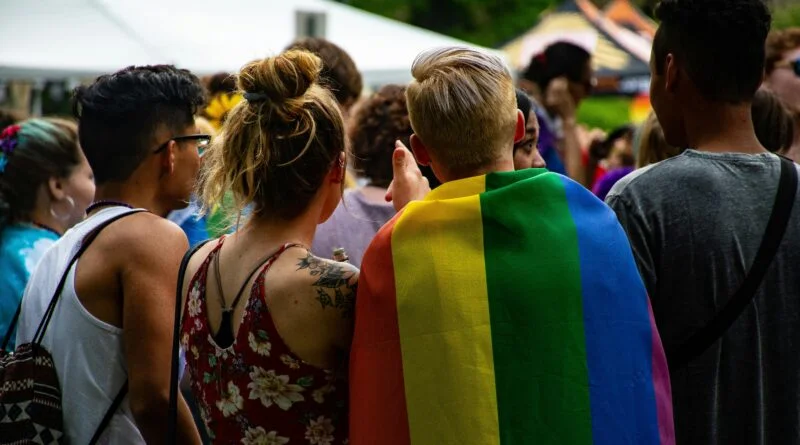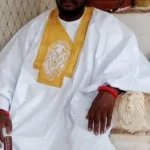- Career & Business
- Fiction & PoetryPlan your next adventure with travel guides, tips, and destination highlights. Discover hidden gems and popular spots to inspire your wanderlust
- Future
- HumanityDiscover the latest trends, style tips, and fashion news from around the world. From runway highlights to everyday looks, explore everything you need to stay stylish and on-trend.
- Lifestyle & RelationshipsExplore stories and advice on living your best life. From personal growth to entertainment, dive into the latest in lifestyle trends and inspiration.
- Mental HealthStay informed about health and wellness with expert advice, fitness tips, and the latest medical breakthroughs. Your guide to a healthier and happier life.
- Science & Technology
- Unbreaking The News
- Career & Business
- Fiction & PoetryPlan your next adventure with travel guides, tips, and destination highlights. Discover hidden gems and popular spots to inspire your wanderlust
- Future
- HumanityDiscover the latest trends, style tips, and fashion news from around the world. From runway highlights to everyday looks, explore everything you need to stay stylish and on-trend.
- Lifestyle & RelationshipsExplore stories and advice on living your best life. From personal growth to entertainment, dive into the latest in lifestyle trends and inspiration.
- Mental HealthStay informed about health and wellness with expert advice, fitness tips, and the latest medical breakthroughs. Your guide to a healthier and happier life.
- Science & Technology
- Unbreaking The News
Now Reading: Nigerian LGBTQI+ Community Reacts to Trump’s Presidency: Fears Over Travel and Funding Cuts
-
01
Nigerian LGBTQI+ Community Reacts to Trump’s Presidency: Fears Over Travel and Funding Cuts
- Career & Business
- Fiction & PoetryPlan your next adventure with travel guides, tips, and destination highlights. Discover hidden gems and popular spots to inspire your wanderlust
- Future
- HumanityDiscover the latest trends, style tips, and fashion news from around the world. From runway highlights to everyday looks, explore everything you need to stay stylish and on-trend.
- Lifestyle & RelationshipsExplore stories and advice on living your best life. From personal growth to entertainment, dive into the latest in lifestyle trends and inspiration.
- Mental HealthStay informed about health and wellness with expert advice, fitness tips, and the latest medical breakthroughs. Your guide to a healthier and happier life.
- Science & Technology
- Unbreaking The News
- Home
- Journalism
- Nigerian LGBTQI+ Community Reacts to Trump’s Presidency: Fears Over Travel and Funding Cuts
Nigerian LGBTQI+ Community Reacts to Trump’s Presidency: Fears Over Travel and Funding Cuts
Neha JainBreaking News, Journalism3 months ago3 Views

As Donald Trump assumed office as the 45th President of the United States in 2017, many members of Nigeria’s LGBTQI+ community faced a wave of uncertainty. The election of a conservative U.S. leader known for his nationalist and restrictive policies sparked fears about travel limitations, foreign aid reductions, and a decline in global LGBTQI+ advocacy.
Fear of Travel Restrictions
Several members of Nigeria’s LGBTQI+ community, who requested anonymity, expressed growing fears about the potential tightening of U.S. immigration policies under Trump.
“I have always dreamed of seeking asylum or furthering my education in the U.S.,” said a member of Nigeria’s LGBTQI+ community. “But with Trump’s election, I fear that people like me will be shut out.”
Trump’s administration implemented restrictive immigration policies, notably Executive Order 13769, commonly known as the 2017 travel ban. While Nigeria was not initially included, the order signaled a broader shift toward stricter visa regulations. In 2020, additional visa restrictions were imposed on Nigeria, heightening concerns that marginalized communities, including LGBTQI+ individuals, could face greater barriers to travel and asylum.
Funding Cuts and Impact on LGBTQI+ Advocacy
One of the most immediate concerns among LGBTQI+ activists in Nigeria was the potential decline in U.S. foreign aid, particularly through the United States Agency for International Development (USAID).
“Many of the programs that support LGBTQI+ rights and HIV/AIDS treatment in Nigeria rely on USAID funding,” said another source who requested anonymity. “If that funding is cut, our community will suffer immensely.”
The Trump administration moved to dissolve USAID, leading to significant funding cuts and the loss of livelihoods for many community members who depended on these programs. According to reports, USAID funding for Nigeria’s HIV/AIDS programs dropped by approximately $100 million, directly affecting organizations, which had to scale back critical health services.
Additionally, Trump reinstated and expanded the Mexico City Policy, also known as the Global Gag Rule, which restricted U.S. funding for organizations that provided or even discussed abortion services. Although primarily targeting reproductive health initiatives, this policy had a broader chilling effect, limiting the ability of NGOs that support LGBTQI+ rights and healthcare to access essential funding.
Weakened U.S. Support for LGBTQI+ Rights Globally
Beyond funding cuts, many in Nigeria’s LGBTQI+ community worried about the weakened U.S. support for LGBTQI+ rights on the global stage. Unlike the Obama administration, which actively promoted LGBTQI+ rights, Trump’s presidency marked a stark departure from such advocacy.
“Under Obama, there was a clear message that the U.S. stood for LGBTQI+ rights. With Trump, that support has disappeared,” an activist noted.
In 2018, the Trump administration opposed a United Nations resolution condemning the death penalty for same-sex relationships. Such diplomatic positions raised concerns that anti-LGBTQI+ policies in countries like Nigeria could be further emboldened without international pressure to uphold human rights.
Recent Executive Actions and Their Implications
In 2025, during his second term, President Trump signed several executive orders that have further implications for the global LGBTQI+ community:
- Defending Women From Gender Ideology Extremism And Restoring Biological Truth To The Federal Government (January 20, 2025): This order established federal policies recognizing only two genders—male and female—across all government agencies, effectively erasing recognition of transgender and non-binary identities. Such a policy shift could influence international norms and embolden anti-LGBTQI+ sentiments in countries like Nigeria.
- Reevaluating and Realigning United States Foreign Aid (January 20, 2025): This order initiated a 90-day pause on all U.S. foreign development assistance programs to conduct a review, with exceptions only for emergency food assistance and military aid to Egypt and Israel. The suspension and potential realignment of aid could severely impact NGOs in Nigeria that rely on U.S. funding for LGBTQI+ advocacy and healthcare services.
- Ending Radical and Wasteful Government DEI Programs and Preferencing (January 20, 2025): This order eliminated all Diversity, Equity, and Inclusion (DEI) programs within the federal government, including those related to LGBTQI+ initiatives. The dismantling of such programs signals a broader shift away from supporting marginalized communities and may influence international partners to adopt similar stances.
Hope Amid Uncertainty
Despite the fears surrounding Trump’s policies, some Nigerian LGBTQI+ individuals remained hopeful that advocacy efforts and grassroots movements could sustain progress.
“There is always fear when a conservative leader takes power,” one respondent said. “But our fight for equality does not depend on just one country. We will continue to push for our rights, with or without U.S. support.”
While the U.S. administration’s policies under Donald Trump have significantly impacted the Nigerian LGBTQI+ community, from travel restrictions to cuts in crucial funding, the fight for equality remains strong. With concerns about the long-term implications of Trump’s policies, many in Nigeria’s LGBTQI+ community are left to navigate a future that is increasingly uncertain, yet driven by hope and determination.
Philip Inyang
.
Stay Informed With the Latest & Most Important News
Previous Post
Next Post
Editorial1 week ago
What’s In A Name?





















